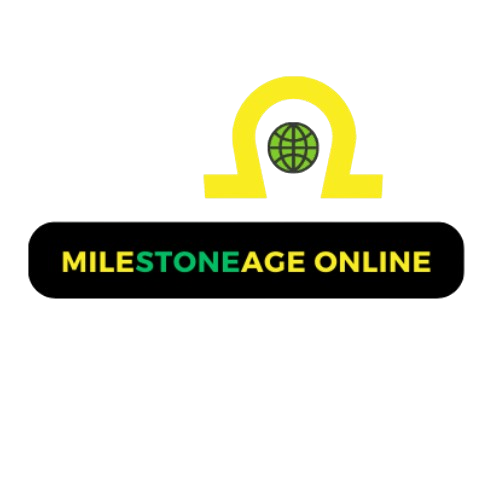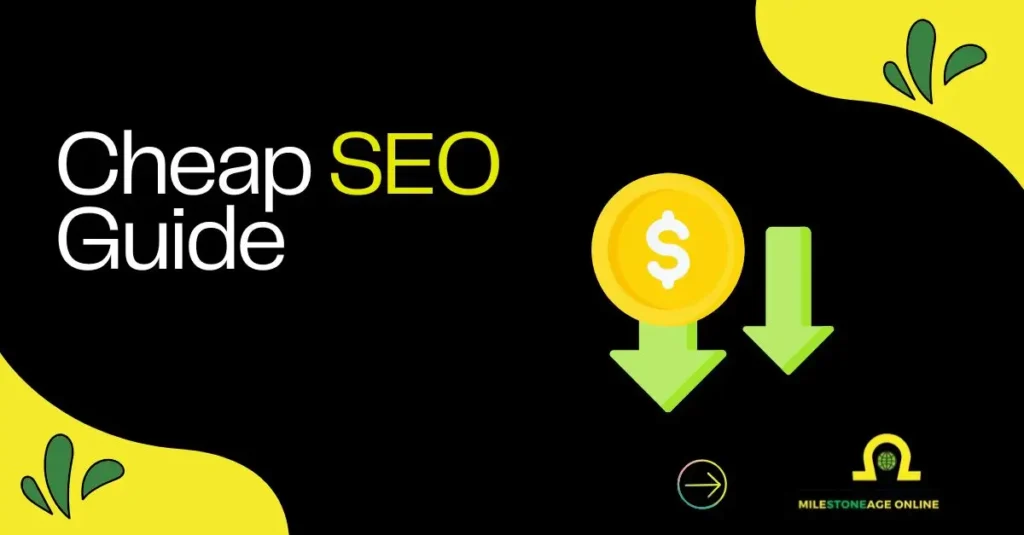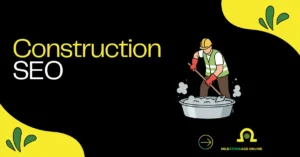Cheap SEO is a budget-friendly approach to improving online visibility. It focuses on using smart strategies and tools to enhance a website’s ranking without high costs.
- Optimize content, meta tags, and internal links for on-page SEO.
- Build quality backlinks and engage in social media for off-page SEO.
- Improve site structure, navigation, and technical aspects for better crawling.
- Use free tools like Google Analytics and Search Console for tracking.
- Focus on local SEO by claiming your Google My Business listing.
By implementing affordable SEO strategies, businesses can grow their online presence while keeping costs low.
Introduction
Affordable SEO is a cost-effective way for small businesses to improve their online presence. It helps your website rank higher on search engines, bringing more visitors and potential customers.
SEO is important because it makes your website easier to find, and it doesn’t require large budgets to succeed. Instead of expensive ads, affordable SEO focuses on optimizing your website content, structure, and external factors like links.
Whether you’re a startup or a local business, affordable SEO can be a game-changer. It allows you to compete with bigger companies without overspending.
Let’s look at how you can get started.
Key Components of Affordable SEO
Affordable SEO includes three key elements: on-page, off-page, and technical optimization. These areas help improve visibility and rank without a high price tag. Let’s break them down clearly.
On-Page Optimization
On-page SEO ensures your website content is well-optimized for search engines. It focuses on improving user experience and relevance.
- Optimizing Content: Ensure your content matches what users are searching for.
- Meta Tags: Create compelling meta titles and descriptions for each page.
- Internal Linking: Link relevant pages within your site to boost navigation.
- Mobile-Friendliness: Ensure your site works well on mobile devices.
- Fast Loading Times: Speed up page load times to improve user experience.
On-page optimization helps users find exactly what they need quickly. By focusing on these areas, you improve your site’s rank and usability.
Off-Page Optimization
Off-page SEO is about improving your site’s authority and trustworthiness. It helps increase visibility and reach beyond your own website.
- Building Quality Backlinks: Gain links from credible sites to improve site authority.
- Social Media: Engage with users on social platforms to drive traffic.
- Local Listings: Ensure your business appears on local directories like Google My Business.
Off-page strategies increase your website’s online credibility. By building relationships and earning links, you strengthen your online presence.
Technical SEO
Technical SEO focuses on improving the backend of your site to ensure it’s easy for search engines to crawl and index.
- Improving Site Architecture: Ensure a clear site structure for easy navigation.
- Structured Data: Use schema markup to help search engines understand your content.
- XML Sitemaps: Create and submit sitemaps to help search engines crawl your site faster.
Technical SEO ensures that your site is well-optimized behind the scenes. These steps allow search engines to crawl and rank your pages more effectively.
Each component plays a vital role in boosting your website’s visibility. Combining these strategies ensures a well-rounded, effective SEO approach.
Cheap SEO Tools and Resources
To make SEO affordable, using the right tools can help you stay on track without breaking the bank. Whether you need free tools or budget-friendly paid options, the right resources can significantly improve your strategy.
Free Tools
Free tools are a great starting point for any small business. They provide essential insights without costing anything.
- Google Analytics and Search Console: Monitor your site’s performance, track traffic, and spot issues.
- Ubersuggest and KWFinder for keyword research: Find the best keywords and assess competition.
These free tools offer a solid foundation for anyone looking to start their SEO journey. With their help, you can track progress and make improvements as you go.
Budget-Friendly Paid Tools
Paid tools are more advanced and can provide a deeper analysis. They can help refine your SEO strategy.
- SEMrush: Offers comprehensive keyword research, competitor analysis, and performance tracking.
- Ahrefs: Provides in-depth analysis of backlinks, site health, and keyword opportunities.
Using these tools can help you fine-tune your strategy and gain an edge over the competition. They are essential for businesses that want to scale their SEO efforts while managing costs.
Choosing the Right SEO Service Provider
When looking for an SEO provider, it’s important to find the right fit for your business needs. Whether you choose an agency or a freelancer, make sure they align with your goals.
Evaluating Agencies
When choosing an agency, it’s essential to evaluate their credibility and experience.
- Assessing Experience: Look at the agency’s track record with similar businesses.
- Client Reviews and Case Studies: Check reviews and successful case studies to gauge their effectiveness.
- Budget Alignment: Ensure their services match your budget, so you get value for money.
Choosing the right agency ensures you have the support needed for long-term SEO success. Make sure you consider all these factors before committing.
Freelancers vs. Agencies
Both freelancers and agencies can provide SEO services, but each has its advantages.
- Freelancers: Often offer cost-effective solutions for smaller, specific SEO tasks. They can be a great choice for limited budgets.
- Agencies: Provide a more comprehensive SEO strategy and ongoing support, but they may come at a higher price.
Deciding between a freelancer and an agency depends on your needs and budget. If you’re looking for specialized work, a freelancer might be ideal. However, for more comprehensive support, an agency could be the better option.
Choosing the right SEO service provider helps you get the most out of your investment. Whether it’s a freelancer or an agency, make sure their expertise aligns with your SEO goals.
Implementing Local SEO Strategies
Local SEO is key to attracting nearby customers. Optimizing your presence in local search results increases visibility for your business. Let’s look at how you can implement effective local SEO strategies.
Google My Business Optimization
Claiming and optimizing your Google My Business (GMB) listing is essential for local SEO success. It helps your business appear in local searches and Google Maps.
- Claiming and Verifying Listings: Ensure you claim your business listing and verify your information.
- Encouraging Customer Reviews: Request reviews from customers to build trust and improve your local ranking.
- Local Citations: Get listed on local directories and relevant local platforms to improve your business’s visibility.
Optimizing your GMB profile allows potential customers to find accurate, up-to-date information about your business. The more active you are on GMB, the higher your chances of appearing in local searches.
Local Content Creation
Creating content specific to your local audience boosts your relevance in local searches. Focus on local events, news, and topics.
- Developing Relevant Content: Write blog posts or articles about local events, news, and customer stories.
- Engaging with Local Community: Participate in local events, collaborate with nearby businesses, and share your involvement online.
By creating content relevant to your local audience, you build a connection and establish your business as an important local player. This helps improve your local search rankings.
Measuring SEO Success
Tracking your SEO progress is essential to see how well your strategies are working. Here’s how to measure your SEO success.
Key Performance Indicators (KPIs)
KPIs help you track the effectiveness of your SEO efforts. Focus on these metrics to evaluate your performance.
- Organic Traffic: Measure the amount of traffic coming from search engines.
- Bounce Rate: Monitor how long visitors stay on your site.
- Conversion Rates: Track how many visitors take action (e.g., making a purchase or filling out a contact form).
These KPIs provide an accurate picture of how your SEO strategies are impacting your business.
Regular Audits
Conducting regular SEO audits ensures your website stays optimized. An audit will help you identify areas for improvement.
- Monthly or Quarterly Audits: Schedule regular audits to track progress and adjust strategies as needed.
- Addressing Issues: Fix any technical problems, broken links, or content gaps identified in the audit.
Regular audits help maintain your website’s health and ensure you’re following the latest SEO practices.
Influencer Insights
Industry experts agree that affordable SEO doesn’t have to sacrifice quality. Instead, it’s about using smart strategies that make the most of available resources.
Neil Patel
Affordable SEO doesn’t mean compromising quality. It’s about smart strategies and efficient use of resources.
Neil Patel emphasizes that small businesses can still achieve great results with the right approach, even on a budget. His advice is to focus on efficient tactics that yield long-term benefits.
Rand Fishkin
Small businesses can achieve significant SEO results by focusing on their niche and leveraging local SEO tactics.
Rand Fishkin highlights the importance of niche focus and local optimization. For small businesses, tailoring SEO efforts to the local market can bring a competitive edge. By honing in on local customers and their needs, businesses can create more targeted, effective strategies.
These insights reinforce the idea that affordable SEO, when done correctly, can be just as impactful as high-budget campaigns.
Boost Your Online Presence with Affordable SEO
Affordable SEO helps small businesses boost their online presence without breaking the bank. By focusing on key strategies like on-page, off-page, and technical SEO, you can improve your website’s visibility and attract more customers.
Start today by optimizing your site with smart, affordable SEO techniques. Use the tools available to track progress and adjust your approach. Consistent effort will lead to long-term success.
FAQs
What is affordable SEO?
Affordable SEO refers to cost-effective strategies that help businesses improve their online visibility without requiring a large budget. It involves optimizing your website content, structure, and external factors like backlinks and local listings to achieve higher search engine rankings.
How can small businesses implement SEO on a budget?
Small businesses can implement budget-friendly SEO by focusing on free tools like Google Analytics and Search Console, optimizing their website for on-page and local SEO, and creating quality content. Building backlinks through partnerships and local directories also helps.
What are the best free SEO tools available?
Some of the best free SEO tools include Google Analytics, Google Search Console, Ubersuggest, and KWFinder. These tools help track website performance, perform keyword research, and identify SEO issues, all without any cost.





